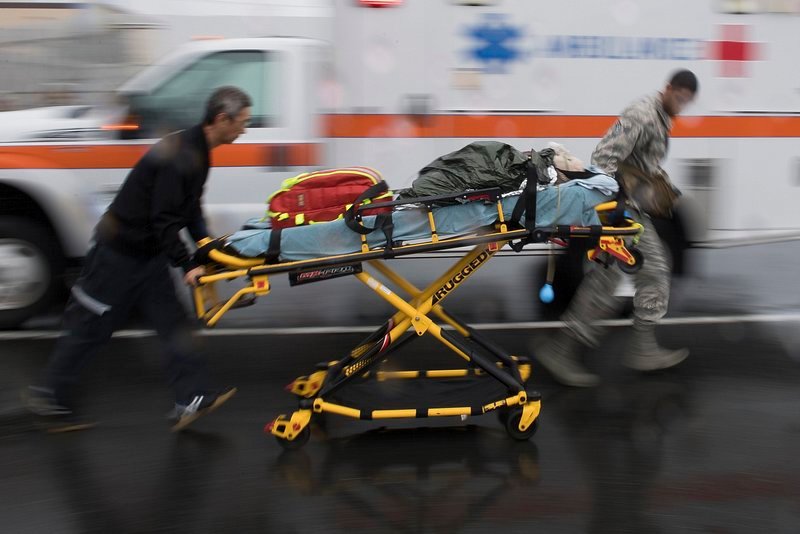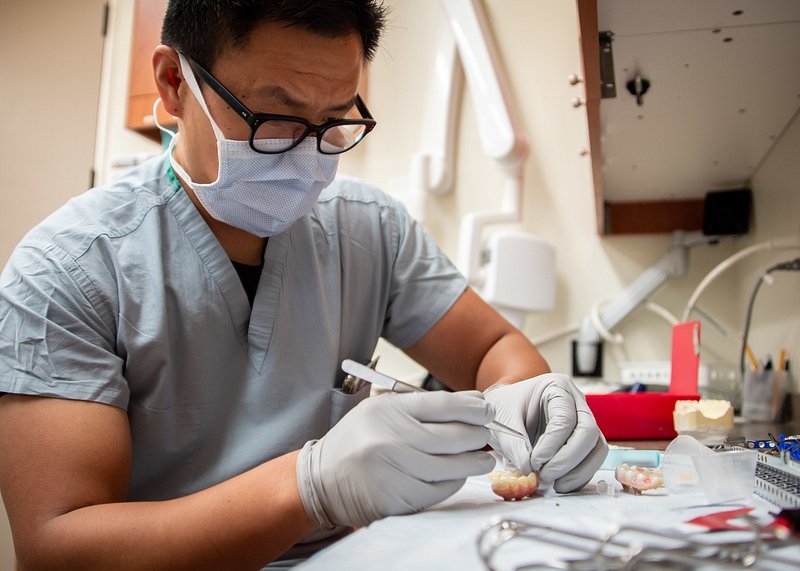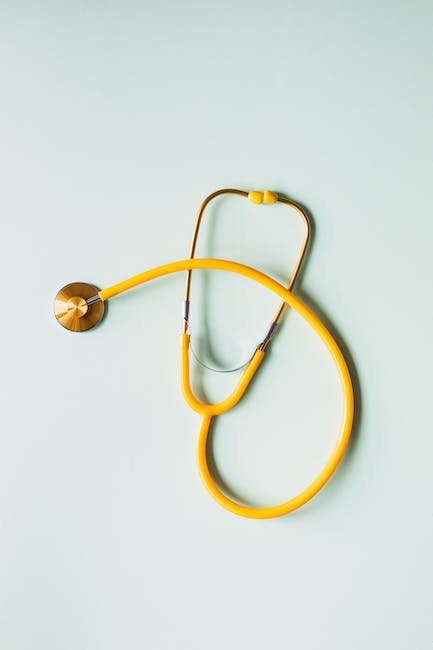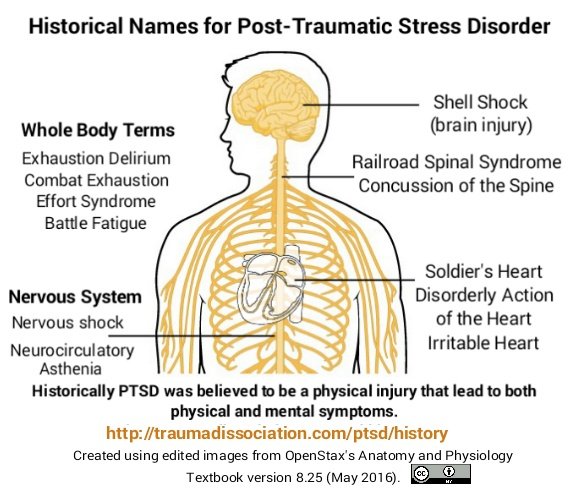Now Reading: The Importance of Hydration in Medical Emergencies
-
01
The Importance of Hydration in Medical Emergencies

The Importance of Hydration in Medical Emergencies
Every day, our bodies rely on an invisible ally that keeps us functioning: water. From quenching our thirst on a hot summer day to replenishing our cells after a grueling workout, hydration is a fundamental component of our well-being. However, its significance extends beyond merely providing refreshment. In the realm of medical emergencies, the role of hydration becomes crucial, making it a vital aspect of both prevention and recovery. When the body’s delicate balance is disrupted by trauma or illness, the very essence of life—water—takes center stage, becoming a powerful tool in the hands of medical professionals. Whether it is reviving a collapsed patient or soothing the effects of soaring temperatures, the fluid we often take for granted can make a life-or-death difference. In this article, we will explore the remarkable importance of hydration in medical emergencies, delving into the science behind it, understanding its various applications, and unraveling its potential to save lives in dire situations. So, brace yourself to unveil the hidden superpower of water as we journey through the profound significance of hydration in the face of adversity.
Table of Contents
- The Role of Hydration in Medical Emergencies: A Vital Component for Effective Treatment
- Exploring the Link between Hydration and Optimal Patient Outcomes in Emergency Medicine
- The Science behind Adequate Hydration: Understanding the Impact on the Body during Medical Crises
- Practical Recommendations for Maintaining Hydration in Emergency Situations: Key Strategies for Healthcare Professionals
- The Crucial Role of Proper Hydration in Preventing Complications and Enhancing Recovery in Medical Emergencies
- Q&A
- To Conclude

The Role of Hydration in Medical Emergencies: A Vital Component for Effective Treatment
When it comes to medical emergencies, hydration plays a crucial role in the effectiveness of treatment. The human body is made up of approximately 60% water, and maintaining proper hydration levels is essential for the body to function optimally.
Hydration acts as a vital component in medical emergencies because it helps to:
- Stabilize blood pressure: Adequate hydration is necessary to maintain blood volume, which in turn helps regulate blood pressure. Dehydration can cause a drop in blood pressure, leading to dizziness and potential complications.
- Facilitate medication absorption: Proper hydration ensures that medications are properly absorbed and distributed throughout the body. In emergency situations, timely administration of medications is crucial, and optimal hydration aids in their effectiveness.
- Promote toxin elimination: Hydration helps flush out toxins from the body, aiding in the elimination of waste products and preventing their accumulation. This is especially important during medical emergencies, as toxins can exacerbate the severity of the condition.
In conclusion, ensuring adequate hydration is a fundamental aspect of effective treatment during medical emergencies. It contributes to stabilizing blood pressure, facilitating medication absorption, and promoting toxin elimination. By recognizing and addressing the role of hydration, healthcare professionals can optimize patient outcomes and improve overall emergency care.

Exploring the Link between Hydration and Optimal Patient Outcomes in Emergency Medicine
Hydration: A Key Factor in Emergency Medicine
Sometimes overlooked but critical to optimal patient outcomes in emergency medicine, the link between hydration and patient care cannot be underestimated. As medical professionals, it is crucial to recognize that proper hydration goes beyond quenching thirst – it plays a vital role in supporting the body’s ability to heal and recover. By understanding the significance of hydration, we can enhance our approach in emergency medicine and improve patient outcomes like never before.
Why is hydration so important?
- Fluid balance: Adequate hydration ensures appropriate fluid balance within the body, maintaining essential functions and preventing complications.
- Enhanced organ function: Optimal hydration supports healthy organ function, allowing the body to effectively carry out crucial processes such as circulation, filtration, and metabolism.
- Improved wound healing: By hydrating patients, we can help optimize nutrient and oxygen delivery to damaged tissues, promoting faster and more efficient wound healing.
- Temperature regulation: Maintaining proper hydration levels aids in regulating body temperature, especially during critical situations, ensuring patients’ comfort and safety.
Strategies to Promote Hydration
- Regular fluid assessment: Implementing routine fluid assessments enables healthcare providers to monitor hydration levels and adjust treatment plans accordingly.
- Education and communication: Educating patients and their families on the importance of hydration empowers them to actively participate in their own care and make informed decisions.
- Access to fluids: Ensuring easy access to water and other hydrating fluids within emergency departments and ambulances allows for timely hydration interventions.
- Individualized treatment plans: Recognizing that each patient’s hydration needs may vary, tailoring treatment plans to their specific requirements can help optimize outcomes and promote patient satisfaction.
By embracing the connection between hydration and optimal patient outcomes, we can revolutionize emergency medicine practices. Incorporating consistent monitoring, education, and individualized approaches, we pave the way for a future where hydration is recognized as an essential element of high-quality care.
The Science behind Adequate Hydration: Understanding the Impact on the Body during Medical Crises
Hydration is a fundamental aspect of maintaining our overall health and well-being, but during medical crises, its importance becomes even more critical. Adequate hydration plays a vital role in how our bodies function and respond during challenging times, such as illness or injury. When facing medical crises, ensuring proper hydration can directly impact our recovery and overall outcome.
So, what exactly happens in our bodies when we are adequately hydrated during medical crises? Let’s explore the fascinating science behind it:
1. Enhanced Immune Response: Adequate hydration promotes a healthy immune system. It enables our immune cells to function optimally, ensuring efficient defense against pathogens and minimizing the risk of infection. Proper hydration also aids in the production of antibodies and cytokines, essential components of our immune response.
2. Optimal Blood Circulation: Hydration is directly linked to blood volume, and maintaining adequate blood volume is crucial during medical crises. Sufficient hydration improves circulation, ensuring that oxygen and nutrients reach affected tissues promptly. This facilitates faster healing and supports vital organ functions.
3. Effective Medication Absorption: In many medical cases, medication is a critical component of treatment. Being properly hydrated helps ensure medication is absorbed effectively, allowing it to reach target areas efficiently. Hydration also aids in the removal of waste products, preventing any potential buildup that could hinder medication effectiveness.
Remember, during medical crises, everything matters, including hydration. By understanding the science behind the impact of adequate hydration on our bodies, we can better appreciate the importance of maintaining optimal hydration levels, ultimately supporting our overall well-being and recovery.
Practical Recommendations for Maintaining Hydration in Emergency Situations: Key Strategies for Healthcare Professionals
When it comes to emergency situations, ensuring proper hydration is crucial for the well-being of patients. As healthcare professionals, there are several practical recommendations that can be followed to maintain hydration effectively.
- Educate patients: Inform and educate patients about the importance of staying hydrated during emergency situations. Encourage them to drink fluids regularly and explain the signs and symptoms of dehydration.
- Monitor fluid intake: Regularly monitor and record the fluid intake of patients, especially those unable to communicate or in critical condition. Implement a systematic approach to keep track of the amount and type of fluids consumed.
- Optimize fluid choices: Offer a variety of fluids based on patient preferences, cultural factors, or medical conditions. Encourage the consumption of water, oral rehydration solutions, and clear liquids whenever possible.
- Provide IV therapy: Administer intravenous fluids promptly to patients who are severely dehydrated or unable to consume fluids orally. Ensure proper monitoring and adjust the IV flow rate as necessary.
- Be mindful of comorbidities: Consider specific medical conditions, such as kidney disease or heart failure, when determining fluid management plans. Collaborate with specialists if needed to ensure individualized care.
By following these practical recommendations, healthcare professionals can play a vital role in maintaining hydration levels during emergency situations, promoting faster recovery and reducing the risk of complications. Remember, hydration is not a luxury but a fundamental necessity for every patient.
The Crucial Role of Proper Hydration in Preventing Complications and Enhancing Recovery in Medical Emergencies
The Importance of Proper Hydration in Medical Emergencies
When faced with a medical emergency, it is crucial to prioritize proper hydration as this plays a significant role in preventing complications and enhancing recovery. Adequate fluid intake can make a world of difference in an individual’s ability to combat the challenges that arise during such emergencies. Here are some key reasons why maintaining hydration is paramount:
- Optimal organ function: The human body is composed mostly of water, and every organ relies on this precious resource to function properly. By staying well-hydrated, we ensure that our organs receive the necessary fluids to perform at their best, which can lead to improved outcomes in emergency situations.
- Promoting circulation and oxygenation: Fluids play a crucial role in maintaining adequate blood volume and circulation throughout the body. When someone becomes dehydrated, the blood can thicken, causing limitations in oxygen and nutrient delivery to vital tissues. By staying properly hydrated, we enhance our body’s ability to efficiently transport oxygen to cells, promoting faster recovery and reducing the risk of complications.
- Regulating body temperature: A medical emergency can often cause a rise in body temperature, which can lead to further complications. By maintaining proper hydration, we enable our bodies to regulate temperature more effectively, helping to prevent overheating and ensuring optimal physiological functioning.
Overall, during medical emergencies, the simple act of proper hydration can contribute significantly to better outcomes. By recognizing the crucial role of fluids in preventing complications, promoting circulation, and regulating temperature, we can empower ourselves to take immediate action towards maintaining hydration levels in emergency situations.
Q&A
Why is staying hydrated important in medical emergencies?
In medical emergencies, the body undergoes stress and can lose fluids rapidly. Staying hydrated ensures that vital organs receive enough blood flow and oxygen, promoting proper function and increasing the chances of a positive outcome.
How does dehydration affect the body during a medical emergency?
Dehydration can worsen symptoms, strain the heart, and hinder the body’s ability to heal. It can also lead to electrolyte imbalances, which may cause dizziness, confusion, or even seizures.
What are the signs of dehydration to look out for?
Signs of dehydration include dry mouth, decreased urine output, dark-colored urine, dizziness, fatigue, and increased heart rate. These signs may worsen in a medical emergency, emphasizing the need for prompt hydration.
What are some ways to hydrate a patient during a medical emergency?
Medical professionals may administer intravenous fluids to rapidly rehydrate patients during emergencies. Oral rehydration solutions or fluids like water and sports drinks may also be used, depending on the severity and type of emergency.
Can dehydration be prevented during medical emergencies?
While it may not always be preventable, taking preventive measures like regular hydration and maintaining a healthy lifestyle can reduce the risk of dehydration during emergencies. In certain cases, individuals with known medical conditions should discuss a hydration plan with their healthcare provider.
To Conclude
As we reach the end of this illuminating journey into the realm of medical emergencies, let us pause for a moment to reflect on the vital significance of hydration. We have traversed the terrain of emergencies, explored the intricate details of life-saving measures, and alleviated the air of uncertainty that often accompanies these critical situations. Now, we arrive at the quintessential element that holds the power to sustain life and bring solace amidst chaos – hydration.
In the midst of a medical emergency, the allure of hydration may seem overshadowed by the urgency of other procedures. Yet, within the intricate tapestry of medical care, it stands as an unsung hero, quietly weaving its magic to nourish the body and restore balance. Water, in its purest form, emerges as the elixir of life, soothing parched throats and revitalizing weary souls.
Hydration, much like a gentle breeze on a hot summer’s day, refreshes the body and empowers it to fight the battles within. It masks itself as a simple gesture, a sip here and there, yet its effects ripple through the body, rejuvenating every cell and igniting the spark of resilience.
Residing within the realm of medical emergencies, hydration boasts multifaceted benefits that extend beyond the mere quenching of thirst. It bolsters the immune system, fortifies the body’s defenses, and facilitates the swift dissemination of crucial medications to every nook and cranny. Moreover, it serves as a formidable ally in combating the harrowing complications that can arise, such as heatstroke, organ failure, or the unforgiving demons of dehydration.
As we conclude this discussion on the importance of hydration in medical emergencies, let us not forget its subtle yet profound role in ensuring the best possible outcomes. It is a gentle nudge in the right direction, a beacon of hope that can transform harrowing moments into triumphant tales of survival. Let water be our constant companion, flowing effortlessly through the labyrinth of our veins, whispering promises of life and vitality.
So, let us raise a glass to hydration, this unsung hero amidst the chaos of medical emergencies. May its significance never be overshadowed, and may it forever hold its rightful place at the heart of every life-saving endeavor. For in the swirl of uncertainty, it is hydration that stands as a guiding light, ushering us towards a future brimming with possibilities, health, and resilience.
As an affiliate, my content may feature links to products I personally use and recommend. By taking action, like subscribing or making a purchase, you’ll be supporting my work and fueling my taco cravings at the same time. Win-win, right?
Want to read more? Check out our Affiliate Disclosure page.





